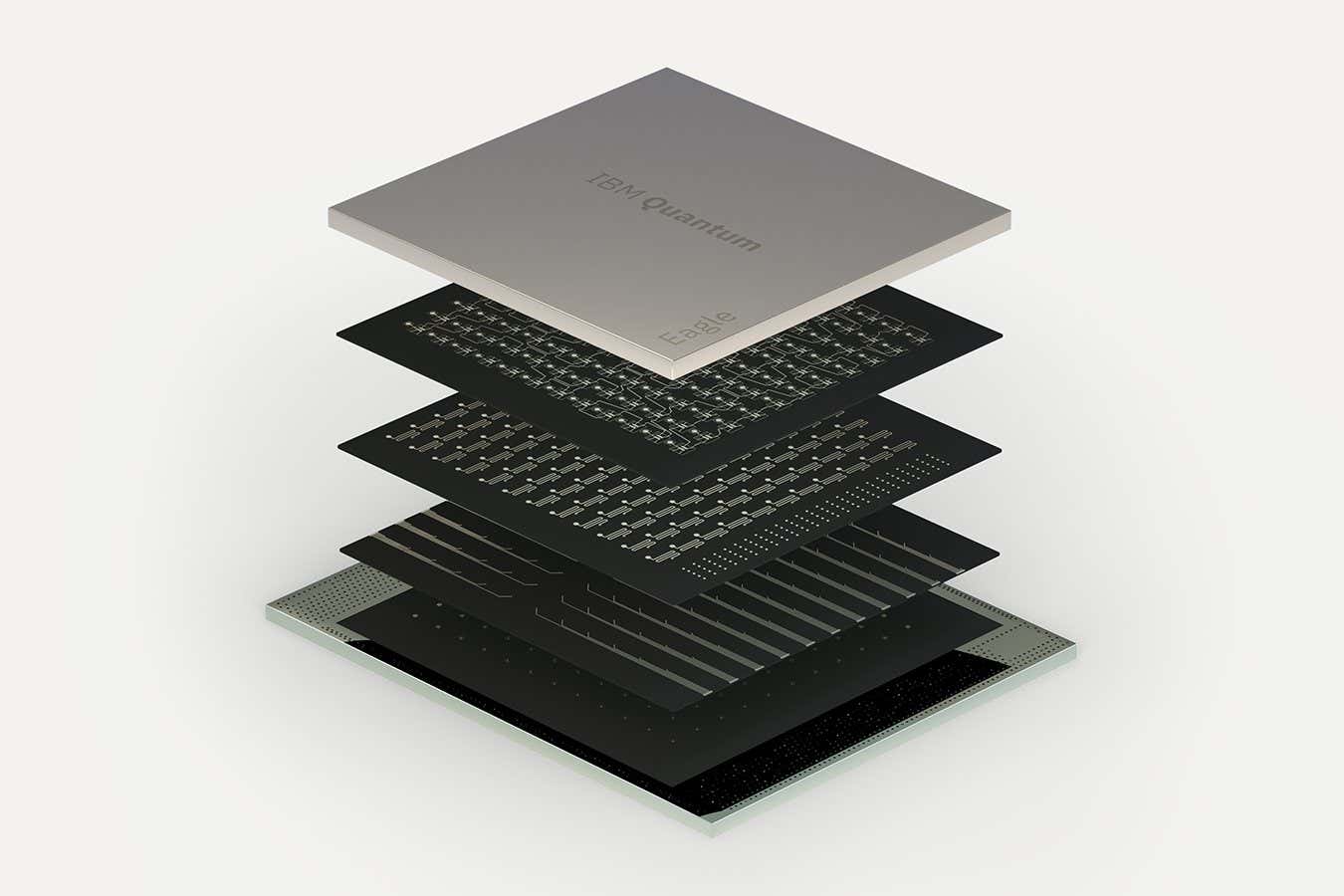Researchers at IBM pitted their 127-qubit Eagle quantum computer against a conventional supercomputer in a challenge to perform a complex calculation – and the quantum computer won
By Karmela Padavic-Callaghan
14 June 2023
The Eagle quantum processor
IBM
IBM’s Eagle quantum computer completed a calculation that stumped the conventional supercomputer it was pitted against.
Quantum computers have sparked excitement for a few decades, but researchers haven’t built one that universally outperforms all conventional computers. This is partly because all existing quantum computers are “noisy” – their results are corrupted by errors, in the same way that sound can get lost in a crackly recording.
Now, Abhinav Kandala at IBM and his colleagues have shown that even a noisy quantum computer can be more accurate in its calculations than a conventional machine.
Advertisement
Read more:
Superconducting qubits have passed a key quantum test
They compared the performance of IBM’s Eagle quantum computer, which contains 127 quantum bits, or qubits, with that of a supercomputer at the Lawrence Berkeley National Laboratory in California. Both were tasked with calculating the most likely behaviour of a collection of particles, such as atoms with spin, arranged in a grid and interacting with each other.
The difficulty of this problem increases with the number of particles. For up to a certain number of particles, researchers can solve the relevant equations on a computer exactly. Supercomputers and approximation methods can handle the calculations when larger number of particles are involved, but eventually computations become so complex that conventional computing fails. The IBM researchers wanted to test Eagle together with a set of methods they developed for mitigating the effects of noise in each of these cases.
